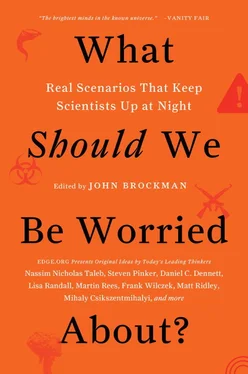Moreover, when taken to extremes the collectivist view can be trite. Every time I drink a great cup of coffee, I could thank the farmers in Colombia who grew the beans, those in Brazil who provided the lush green fields of swaying sugar cane used to sweeten it, or the herdsman in Devon who milked the cows so my pick-me-up could be decorated with a little froth. I could also thank the nuclear power workers who provided the electricity to heat it, the person who had the bright idea of drinking a beverage based on roasted seeds in the first place, or who patented the first espresso machine. I could list all those hundreds of people who worked in supply lines straddling the planet to bring the energy, information, and ingredients together. I prefer to thank the barista, since our amazing ability to cooperate is a defining characteristic of human society, and it’s a given that many others were involved in almost everything we do.
You are going to complain that hero worship can distort our picture of the way science is done. Yes it can. But the public is sophisticated enough to know that real life is always more complicated than the spectacle of an athlete standing on the podium. Nobody pretends otherwise. In the Paralympics, the heroes routinely thanked their family, sponsor, trainers, friend who paid for driving lessons, sports psychologists, sports scientists, and so on for their gold medals. We all know that, but that does not diminish the impact of winning a gold.
You are going to complain that all I’m really saying is that we need heroes because the public is slow on the uptake. Not at all. It’s just that I believe in talking to people in a language they understand and in a way that ensures they will be receptive. We need convenient truths that can convey the kernel of science to a general audience without exhaustive emphasis on the collective aspects of discovery, let alone recourse to calculus, jargon, and dense descriptions. Scientists routinely use metaphors to communicate complex ideas, and by the same token you need heroic characters as metaphors to convey the broad sweep of scientific developments. The point is that heroes work as viral transmitters of science in the crowded realm of ideas. That’s important, because we need as many people as possible to know what science is about if modern democracy is to function.
That is why, ultimately, we should be worried about the decline of heroes of science. The culture of skepticism, testing, and provisional consensus-forming in scientific research is the most significant achievement of our species, and it’s time that everyone understood that (OK, it’s going to be hard when it comes to the politicians). The real issue is not whether or not we should have heroes—of course we should—but how to ensure that they tell a reasonably truthful story about that amazing and supremely important endeavor we know as science.
MICHAEL VASSAR
Cofounder & chief science officer, MetaMed Research; former executive director, Singularity Institute
No one really knows what we should be worried about; the smartest people around seem to generally think the answer is machine intelligence. They may be right, but other types of inhuman intelligence have a track record worth worrying about. I’m worried that so few of us are doing anything to fight back against it.
In a pre-verbal tribe, most of the monkeys don’t need to decide where they’re going—because if they go off on their own, either the leader will kill them for rebelling or a jaguar will kill them once they’re separated from their pack. Only pack leaders need to activate the messy symbolic intuitions that tell them what’s out there and what needs to be done. As Abraham Maslow might say, only people who see themselves as chiefs, who have satisfied their need for esteem, are in a position to self-actualize.
Maslow suggests that at one level of description a human being consists of five programs. One escapes immediate danger, one seeks comfort and physical security, one finds a social context in which to be embedded, one builds esteem within that context, and one directs big-picture intentionality. When a given program reports satisfaction, the next program is turned on and starts competing in its more subtle game.
Some of those programs attend to things that can be understood fairly rigorously, like a cart, a plow, or a sword. Others attend to more complicated things, such as the long-term alliances and reproductive opportunities within a tribe. The former programs might involve situational awareness and detailed planning, while the latter might operate via subtle and tacit pattern-detection and automatic obedience to crude heuristics. If so, the latter programs might be fairly easily hacked. They might also offer a less fertile ground for the emergence of a Universal Turing Machine. Mechanical metaphors of solidity and shape might constitute a good substrate for digital, and thus potentially abstract, cognition, while social metaphors for vague properties like weirdness, gravitas, and sexiness might constitute a poor foundation for universal cognition. These programs seem to have been disfavored by history’s great scientific innovators, who tend to make statements like “I do not know what I may appear to the world, but to myself I seem to have been only like a boy playing on the seashore, and diverting myself in now and then finding a smoother pebble….” or “What do you care what other people think?”—which sound like endorsements of physical over social cognition.
So I worry about the consequences of assisting a population in satisfying its physiological needs but not its love, belonging, and esteem needs. Such a population would be at risk for underdevelopment of the programs for satisfying physiological and safety needs. That would be harmful if these functions are the basis for precise thought in general. One might argue that the solution to this problem is to hurry people through their love, belonging, and esteem needs, but that approach incurs further hazards.
Dacher Keltner and other psychologists have showed that higher socioeconomic class—essentially, higher satisfaction of esteem needs—leads to increased unethical behavior; other research suggests that external efforts to boost self-esteem tend to produce antisocial narcissism. Research of this type fits in well with Jonathan Haidt’s theories on the authoritarian dimension of moral cognition. It may not be a coincidence that one of the world’s most popular religions is literally named “submission.” In general, authoritarian impulses have always prompted rulers to keep their subjects’ bellies full and pressed firmly against the ground. Steven Pinker has compellingly established the success of modern society in bringing us unprecedented peace. People who don’t fear for their safety but who despair of ever achieving love or belonging are the most submissive.
When we say someone is “smart,” we largely mean that they learn quickly. In circumstances where most students reach a seventh-grade reading level, the “gifted” students absorb the full content of their schooling. According to New York City’s three-time Teacher of the Year John Taylor Gatto, that curriculum consists primarily of six lessons, but it seems to me that these lessons can be summarized in one word: submission.
Robert Altmeyer’s research shows that for a population of authoritarian submissives, authoritarian dominators are a survival necessity. Since those who learn their school lessons are too submissive to guide their own lives, our society is forced to throw huge wads of money at the rare intelligent authoritarian dominants it can find, from derivative startup founders to sociopathic Fortune 500 CEOs. However, with their attention placed on esteem, their concrete reasoning underdeveloped, and their school curriculum poorly absorbed, such leaders aren’t well positioned to create value. They can create some, by imperfectly imitating established models, but can’t build the abstract models needed to innovate seriously. For such innovations, we depend on the few self-actualizers we still get—people who aren’t starving for esteem. And that does not include the wealthy, the powerful, and the “smart”; they learned their lessons well in school.
Читать дальше












